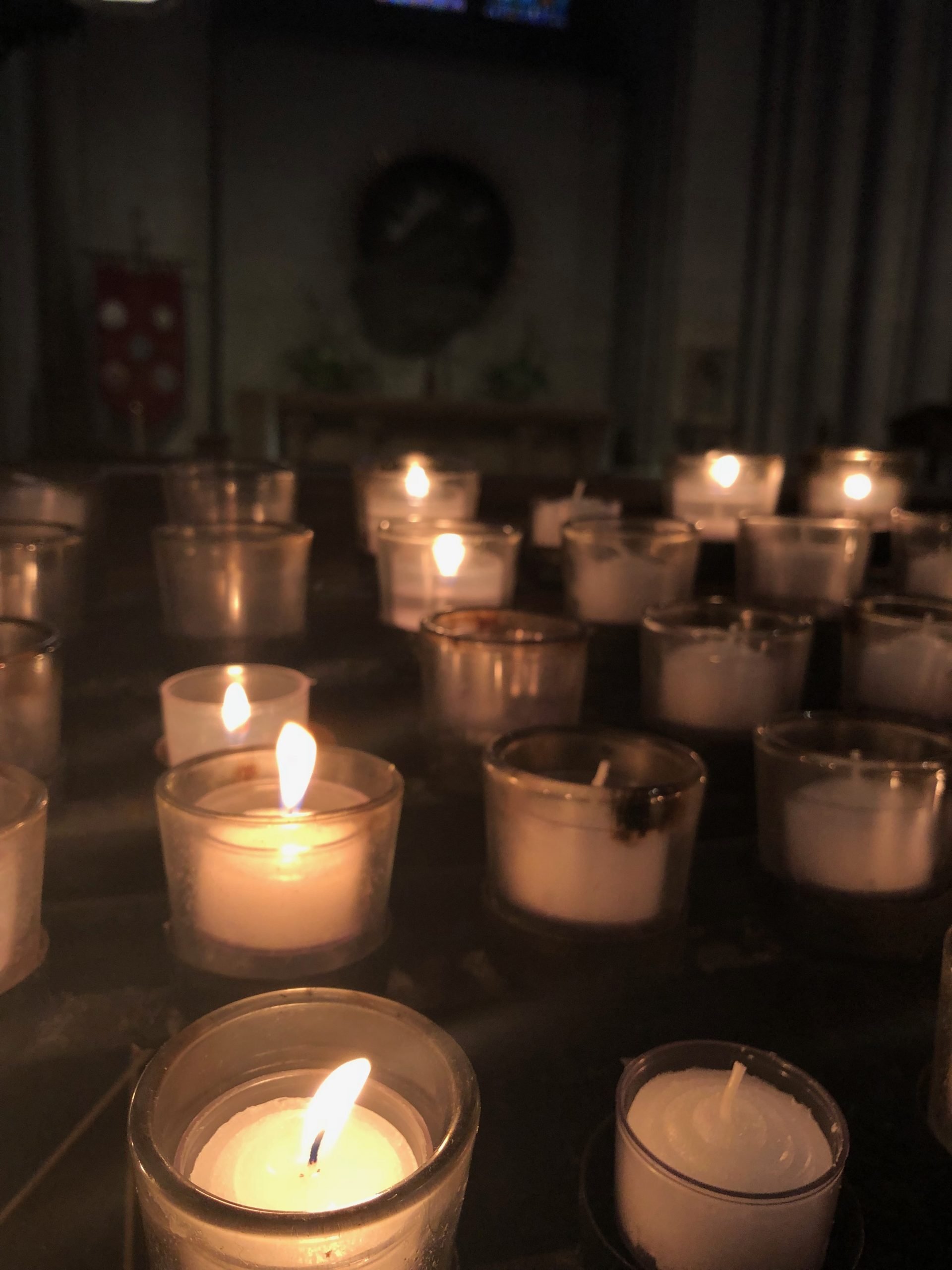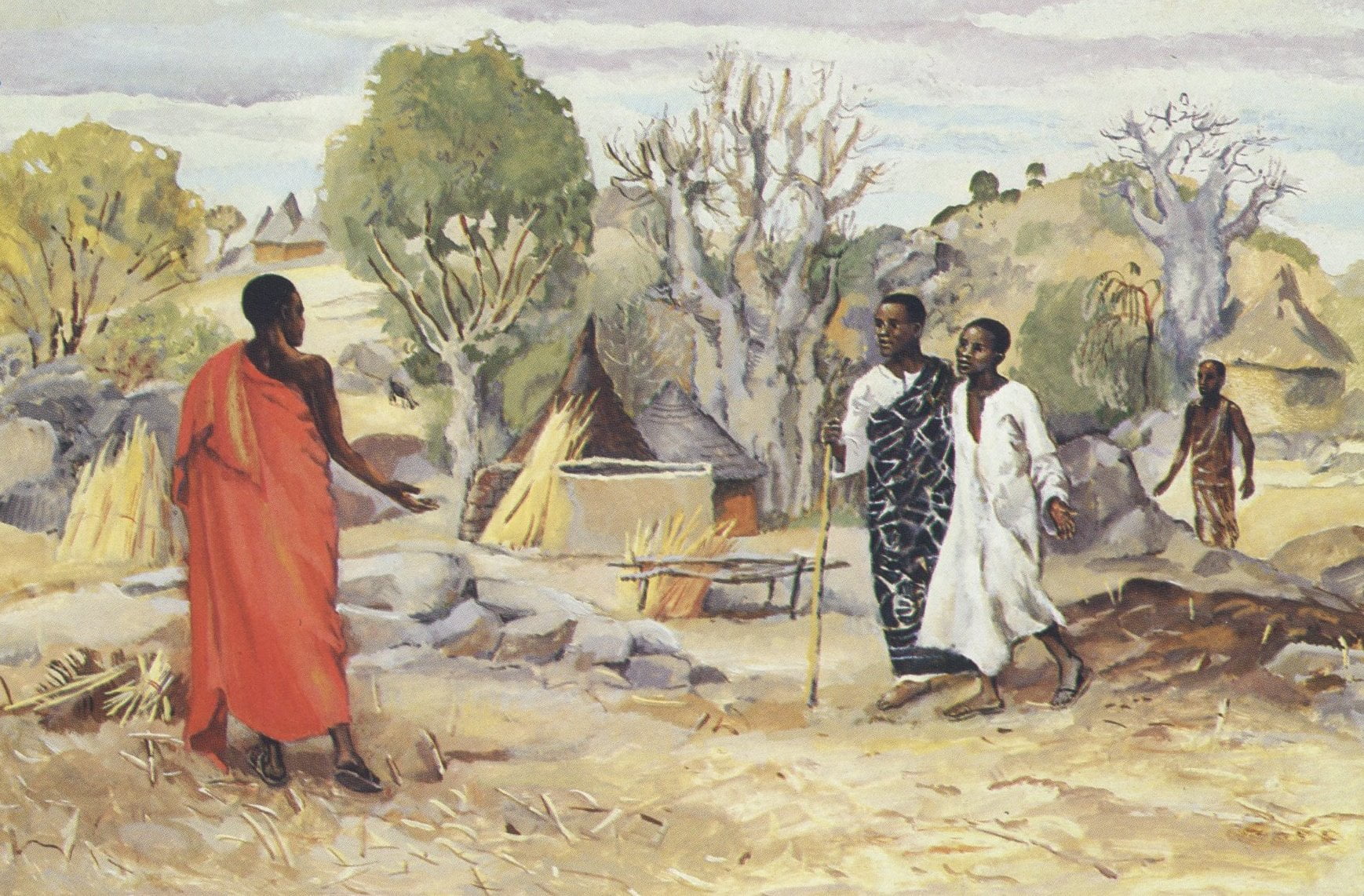1 Samuel 3:1-10, (11-20) and John 1:43-51
Reflection for Wesley Uniting Church, Forrest, Epiphany 2
Samuel
I am still quite young. I sleep in the place of worship, where I live, study, work, serve the priest, Eli – the only parent figure I know, really, after mine dedicated me to the priestly life, to God. But that’s another story.
I am asleep, and I am awakened by a voice calling me by name. Who else would I think it would be, calling me, but Eli, who sleeps in a room nearby, close enough for me to hear him call. With his fading eyes, he does call out for help from time to time. In his role in my life, of course he calls to me, often – he is the person who calls to me more than any other, every day.
Context shapes my expectation. I expect Eli to call on me, as I assist him around the Temple. Expectation shapes my response to the calling of my name – I expect this voice will be, again, that of my teacher, Eli.
By implication, then, nothing Eli has taught Samuel seems to have given Samuel an alternative expectation. Samuel is in the place of worship as a dedication to God, and his teacher seems to have not yet taught Samuel to listen for and recognise the voice of God.
Anyone see a problem with that?

Eli
I am now quite old. My eyesight has almost gone. But even when it was good, I didn’t see what was under my nose, my sons, their behaviour … God has spoken to others against my sons, my house, against me. But I don’t hear God’s voice anymore.
The child wakes me in the night. Did I call him? no, child, I was sleeping, go back and do the same.
And again, he wakes me, thinking I have called.
And again?!
Oh, perhaps it is God calling Samuel. People have noticed the way he has grown into his role in the Temple, learning, and serving well. I suppose God might call the child.
Try that, Samuel. Try answering that you’re listening, if God is speaking.
How far have I drifted from God, that I did not perceive in the voice Samuel was hearing, the Divine. I suspect there will be no good news for me in whatever God has to say to tonight. Well. I am resigned. Perhaps Samuel’s time has come, and he will be student no more. I will be teacher no more.
Eventually, Elie perceives: and more clearly than he has in a long time, it would seem. Eventually, his own broken relationship with God is put aside, and he can guide Samuel in discerning and responding to the voice of God.
Experience shapes Eli’s expectation, too, or lack of it. He has lost the expectation of encounter with God, reading between the lines. That hinders his capacity to support his student; hinders Samuel’s growth in that moment, at first.
No adult has crushed a young person’s enthusiasm, curiosity, exploration or understanding of Divine encounter in your experience, ever, have they?

Divine revelation
This story is a key episode in the establishing of Samuel as a prophet who can be trusted to speak truth. As one who will lead with integrity in the story that unfolds from here. And Eli functions, in part, as something of a foil, a contrast, to that integrity, in his failure through his sons. The contrast allows the storyteller to shine the spotlight on Samuel, the dedicated child growing up in the presence of the Lord.
Hearing this story in the season of Epiphany, the season of Divine Encounter, we pick up on that element of the story. divine revelation.
What do we notice about Divine revelation in this story of Samuel, God, and Eli?
How we meet God’s self revelation will be shaped by our expectations and experience.
We can’t change the experience of the past. We can make choices about our current experience, our current practice, shaping behaviours and rhythms of life that will hone our expectation of God’s self revelation; that will sharpen our listening so as to recognise God when we hear God’s voice.
Our capacity to understand, to perceive, is helped or hindered by others, especially by our mentors, teachers, elders.
And the flip side of that is our responsibility to others: our capacity to perceive, to discern God’s voice will help or hinder those beside whom we walk, in their perceiving and discerning of God’s voice.
The building of our practices and rhythms, then, shaping experience and expectation in readiness to respond, is for our own participation in God’s Way – and it is not for ourselves alone.
Philip
I have grown up immersed in the Sacred Story. I know the stories of Moses well, the tradition of the prophets. When I saw Jesus, I perceived in him the one of whom the stories promise. I saw, I heard, I knew: Messiah, hope, liberation. I wanted Nathaniel to see, to hear, to know. come and see, I urged him!
Philip is a disciple John mentions often in his telling of Jesus’ story. Only Peter is mentioned more often in this gospel account.
So, again, this episode serves to establish a key character in the story, establish him as a faithful inheritor of the traditions of his spiritual ancestors. This is a character on whom Jesus can, and will, heavily rely.
Philip’s capacity to perceive enables him to join in with what God is doing in and through Jesus. Recognising in Jesus the one of whom the ancestors and prophets spoke, Philip chooses to participate.
He also, then, has the ability to invite others to participate in this liberating work of God in Jesus. He has nurtured his practices to build an expectation of encounter with God, so that when he meets God’s self-revelation, he knows God, and joins in, and more, seeks to invite others to come and see.
Who have you known who has called you to come and see?
Have you been so inspired by your understanding, your discovery of life and hope with God in Jesus that you have invited others to come and see?
Nathaniel
I’ve heard those same stories my whole life, as Philip has. We’re the people of Israel, of course we have. But I’m also a Northerner. So I know, I’ve heard it often enough, that this Messiah won’t come from Nazareth – and isn’t that where this guy comes from? You might call me jaded, or of a more pessimistic persuasion. Well. In my experience, nothing good comes out of Nazareth.
Nathaniel’s experience seems to shape his response, dismissing Jesus because he apparently comes from Nazareth. The Nazareth upbringing for Jesus is less well established in John’s story than it is in other gospel accounts. It’s not entirely clear what is meant in this exchange. Nazareth, Galilee, is in the North, Jerusalem, Judea is in the South. So there is the possibility of a north-south antagonism – like that between Victoria and New South Wales, or the two of them and Queensland, or the East–West antagonisms between Melbourne and Adelaide, or Edinburgh and Glasgow. However, both Nathaniel and Jesus are in this scenario, northerners. It’s unclear whether Jesus’ words of Nathaniel as an Israelite of no deceit are a jibe from a southerner (elsewhere it seems John sees Jesus as a Judean), or an affirmation from one member of the tribe to another. Again, it’s odd. and I digress.
The point is that Nathaniel seems to allow his prejudice, his pre-judgement about who can or cannot be the Messiah the Story promises, to hinder his capacity to hear Philip’s interpretation, his understanding of the story and of who Jesus is. Nathaniel closes himself to the divine revelation in Jesus, at first.
Then Jesus plays a cheap trick, so it seems, in Divine perception – and remember, John is the gospel that elevates Jesus’ divine nature the most of the four. the cheap trick jolts Nathaniel out of his unperceiving.
When Jesus tells him, and ‘all of you’, that you’ll see greater things – is it a reminder to look further than your preconceptions, to listen beyond your expectations – for the real miracles and wonders?
To build your practices in discernment so as to minimise the risk of those preconceptions hindering your perception and understanding of what God is up to, where God is revealed before you.

God is calling
Again, there is more going on here, as John builds a foundation for his telling of the story of Jesus. The naming of Jesus as ‘king’ on Nathaniel’s voice, for instance, foreshadows later uses of that title, such as Pilate’s mockery of Jesus, ‘king’ of the Jews.
But as we bring our story into conversation with the story of Philip, Jesus, and Nathaniel, and the story of Samuel, God, and Eli, we will hear, notice, particular themes and ideas. As Epiphany shapes our hearing of the stories to highlight the divine encounters, our approaching review of our identity and call as the Wesley Uniting Church in Forrest, highlights for me the characters’ capacity, or lack thereof, for discerning, perceiving, and responding to the call of God.
We will be paying attention to who we are and how we might participate in what God is up to in the world in coming months leading up to and following on from that review day. so I hear a challenge in these stories to us, to
listen deeply and beyond what we expect to hear from God
look closely and beyond where we expect to see God
and practice, practice, practice our skills of discerning, perceiving, and responding
If we are steeped in the stories, we may, like Philip, recognise when God turns up, in our midst, in the people we meet
and then we can choose to participate in liberating, life-giving relationship
If we can shed our prejudices, pre-conceptions, we may allow God to meet us, even in a Nazorean, a northerner – in a child, a foreigner, a differently abled, differently gendered, an old, a lay, an ordained, a human, flesh and loved like us …
and then we can choose to participate in liberating, life-giving relationship
If we nurture a vital relationship with God, with the Story, we may help, rather than hinder, each other in our hearing, our responding to the call of God
and then they, we, may choose to participate in liberating, life-giving relationship
If we build practices of listening, seeking, readiness to act, like Samuel, we will be ready when God calls, ready to speak God’s message with courage and integrity, to be a trusted presence in our community.
God is always calling, always self-revealing: let’s get ready to perceive, to listen, to respond. Amen.





Leave A Comment